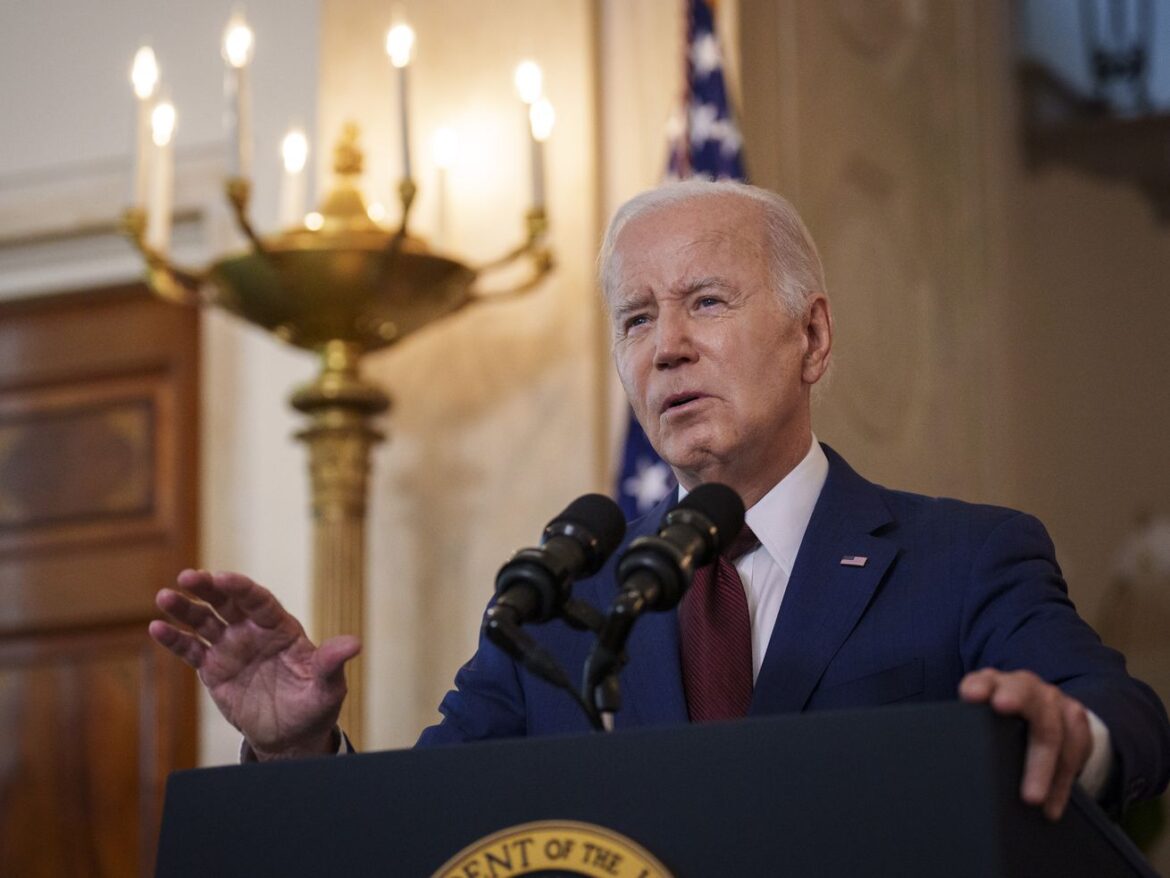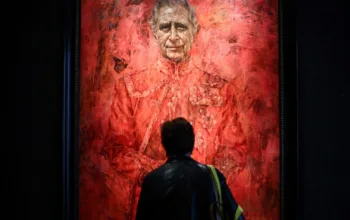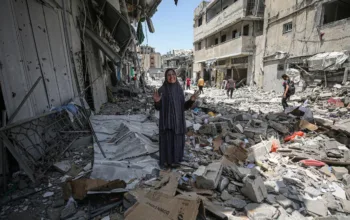The new White House Office of Gun Violence Prevention, Biden said, comes “in the absence of that sorely needed action.”
Speaking in front of gun violence survivors, activists, and lawmakers, President Joe Biden on Friday announced a new White House Office of Gun Violence Prevention, an effort he promised would “centralize, accelerate, and intensify” the federal government’s efforts to combat gun violence.
“After every mass shooting, we hear a very simple message … do something,” Biden said in the White House Rose Garden. “My administration has been working tirelessly to do something,” Biden added, pointing to executive actions his administration had taken on ghost guns and gun trafficking, as well as the Bipartisan Safer Communities Act, landmark legislation that became law in 2022.
The new office, according to Biden, is one more attempt to answer that call, helping, for example, to “coordinate support for survivors, families, and communities affected by gun violence,” an effort that he said would be similar to the Federal Emergency Management Agency (FEMA), the government’s on-the-ground emergency response team. The office will also seek to identify more executive actions the president can take. Biden noted that he would continue to urge Congress to take legislative action on banning assault weapons and implementing universal background checks. Until then, he said the White House and activists will move forward with or without them.
There have been more than 500 mass shootings in 2023, according to the Gun Violence Archive, and more than 30,000 firearm-related deaths. Gun violence deaths among teens and children also rose an alarming 50 percent between 2019 and 2021 to become the leading cause of death for children in the United States.
Stefanie Feldman, an aide to President Biden who’s been working on gun safety policy with him for over a decade, will be the director of the new office. In an interview with Vox, she said that the office is meant to implement the laws and policies passed during Biden’s tenure, including the Bipartisan Safer Communities Act and the president’s executive actions on gun violence. “The president wants to make sure we get it done right.” She also reiterated the message that the president and vice president would urge but not wait on Congress to pass new laws.
Currently, multiple government agencies are involved in efforts to reduce gun violence, including the Department of Justice, which gives grants to communities working to prevent gun violence; the Department of Health and Human Services, which funds research studying gun violence as a health epidemic; the FBI, which runs criminal background checks; and the Bureau of Alcohol, Tobacco, Firearms and Explosives, which enforces national gun laws and regulates firearms sales. The White House, its gun reform allies in Congress, and advocates have been coordinating with one another for years. This office puts all of those efforts under one roof, with a dedicated leadership team inside the executive branch.
Leading the effort will be Vice President Kamala Harris, a former prosecutor who has worked on gun safety issues during her time in the White House. At the ceremony, Harris drew on her past experiences as a prosecutor in making a case for the office. “I’ve seen with my own eyes what a bullet does to the human body,” she said. “We cannot normalize any of this.”
Two prominent activists in the gun violence prevention movement, Greg Jackson, executive director of the Community Access Justice Fund, and Rob Wilcox, former senior director of federal and government affairs at Everytown for Gun Safety, will serve as deputy directors. Both have a personal connection to their work: Wilcox lost a family member to gun violence, and Jackson was shot and seriously injured in Washington, DC, in 2013.
Gun violence reformers have been pushing the Biden administration to create a special office since at least the beginning of his tenure. The creation of a task force inside the White House was one of the primary recommendations from the Center for American Progress and Giffords, the gun violence reform group headed by former Congress member and gun violence survivor Gabrielle Giffords. She revealed that she also wrote a letter to the then-president-elect about creating a task force. Giffords acknowledged that the scourge of gun violence wouldn’t be resolved overnight, “but every step forward will save lives — and today’s announcement is a giant step forward,” she wrote.
The president’s move was praised by leaders across a wide range of disciplines. “It really speaks to the gravity of the issue,” Chethan Sathya, a pediatric trauma surgeon who leads Northwell Health’s gun violence prevention center, told Vox. “This is one of our chief public health crises, a main killer of kids in this country. We need folks singularly focused on this issue.”
Lucy McBath, a Democratic Georgia Congress member whose son, Jordan Davis, was murdered in 2012, also appeared at the White House press briefing Friday. “Nobody wants to experience what I have, but my story is becoming far too common in the United States,” McBath said. Biden, she said, “is taking decisive action by declaring loudly and clearly: We do not have to live this way.”
The White House’s invitation to activists to help coordinate its effort shows that it recognizes that the movement has grown considerably in the last 10 years, becoming more powerful and effective. “The biggest fundamental change is that survivors took over,” Jackson, who is joining the office as deputy director, told Vox earlier this year. “Survivors went from being voices that contribute to some broader campaign to being the leaders of everything. When survivors started to take over … we saw a huge shift away from simple hardware regulation [of firearms] to an array of solutions that are chipping away at the problem, and a more comprehensive approach.”
The creation of the office also reflects that gun-safety proponents represent a real constituency in American politics: According to a Pew Research Center report from earlier this year, six in 10 Americans say gun violence is a serious problem, 61 percent say it’s too easy to legally obtain a gun, and 58 percent support stricter gun laws. Rep. Maxwell Frost (D), the first Gen-Z member of Congress, has made ending gun violence one of his top legislative priorities. He introduced Biden at the event and noted that “this issue, especially for young people, especially for marginalized communities, is a matter of survival.”
For the millions of Americans who want to see an end to the horrific toll that gun violence takes every year, there’s an understandable sense of despair that sets in after news of gun violence — and a healthy amount of skepticism when politicians offer solutions that seem to fall short. In opening the office, though, the White House seems to be acknowledging that it can’t afford to wait for Republicans to get on board. Directing his final comments at the survivors and activists, Biden explicitly aligned himself and his administration with their cause. “You’re right. We’re by your side, and we’re never going to give up dealing with this problem,” he said. “We can do this, we just have to keep going. We just have to keep the faith.”



